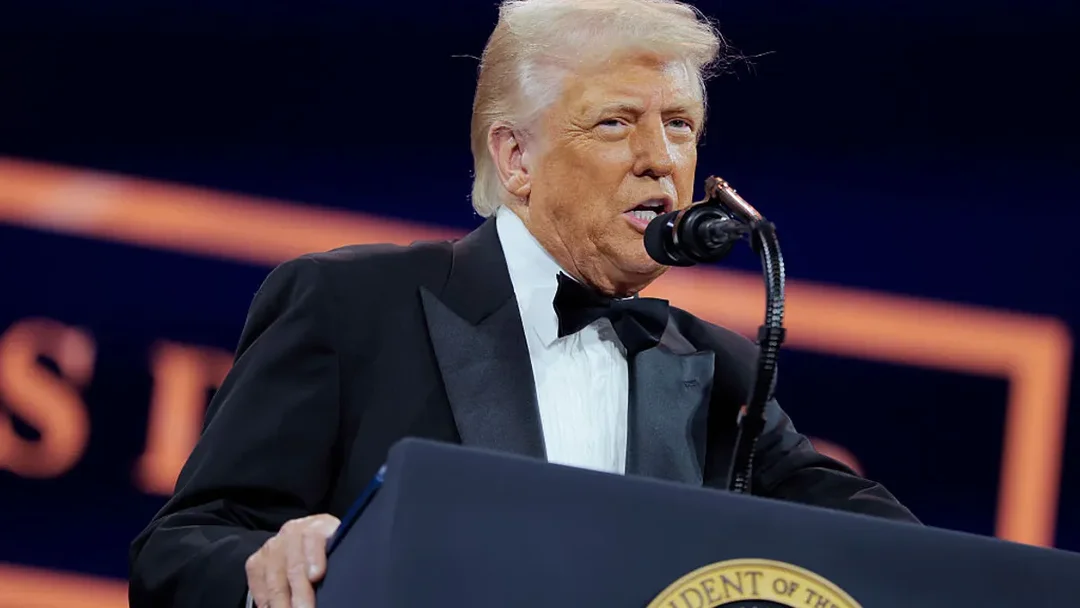
Trump’s Assault On State Climate Laws Sparks National Showdown Over Energy And Environment
In a bold escalation of federal overreach, former President Donald Trump has issued a sweeping executive order that directs his administration to thwart state climate action across the country, taking direct aim at California and other states leading efforts to curb fossil fuel pollution. This controversial move sharpens the national debate on states’ rights versus federal authority, energy policy, and the US’s climate future.
Signed on April 8, the order commands Attorney General Pam Bondi to identify and stop the enforcement of any local or state laws deemed to “burden” the development, production, or use of American domestic energy—particularly oil, coal, and gas. Trump explicitly condemned so-called “climate change” measures, carbon taxes, and environmental justice policies as ideological roadblocks undermining what he calls “American energy dominance,” a phrase echoed throughout the order’s text.
The president singled out California’s pioneering cap-and-trade market as an example of climate regulation run amok, accusing the state of punishing carbon use “by adopting impossible caps” and creating a “radical” system that effectively forces companies to buy costly carbon credits. He went further to criticize New York and Vermont for passing ‘climate superfund’ laws designed to make fossil fuel giants pay for damages caused by greenhouse gas emissions and historic climate deception. According to Trump, these efforts amount to unconstitutional “extortion.”
This directive dovetails with Trump’s push to revive coal production—in fact, the order coincided with sweeping measures to reopen federal lands to coal leasing and extend the lifespan of aging coal plants. It follows reported lobbying by fossil fuel executives to secure federal protection from mounting state lawsuits and legislation demanding climate damages compensation. Environmentalists and state officials see it as a pre-emptive strike designed to shield Big Oil from accountability.
Advocacy groups strongly condemned Trump’s move, framing it as an assault on democracy and climate action. Cassidy DiPaola of Make Polluters Pay argued it “weaponizes the Justice Department against states like California that want to make polluters pay for climate damage,” accusing the administration of succumbing to fossil fuel industry pressure. Aru Shiney-Ajay from the Sunrise Movement called it “an illegal, disgusting attempt to force everyday people to pay for the rising toll of climate disasters, while shielding the richest people in the world from accountability.”
Legal experts questioned the constitutionality of such federal intervention. “Trying to sic the Justice Department on state officials protecting their people from pollution will fail,” said Jason Rylander of the Center for Biological Diversity, adding that the Attorney General has no power to unilaterally declare state laws illegal without court rulings. Maggie Coulter, another attorney, noted that actually blocking enforcement of state laws requires lawsuits and judicial decisions, raising the prospect of protracted legal battles.
Trump and industry allies defend the order as a necessary step to lower energy prices, spur domestic production, and prevent a patchwork of state rules that allegedly threaten consumers nationwide. The American Petroleum Institute welcomed the decision to hold “unconstitutional efforts” by states accountable, insisting it would help restore legal clarity and energy affordability.
California has vowed to fight back on all fronts. Governor Gavin Newsom dismissed Trump’s order as “a glorified press release masquerading as an executive order,” pledging that “California’s efforts to cut harmful pollution won’t be derailed.” The state touts substantial progress: greenhouse gas emissions cut by 20% since 2000, a 1,600% boost in battery storage since 2019, and running on 100% clean electricity for 45 days last year.
This confrontation crystallizes a wider clash over control of the nation’s climate destiny. Does Washington have the right to steamroll states that set ambitious environmental standards? Or are innovative state policies essential in the face of federal inaction and climate urgency?
As Trump’s executive order sets the stage for a fierce legal and political fight, many Americans are left questioning whether the country will prioritize energy profits, constitutional principles, or a sustainable climate future. Readers — what do you think about this sweeping move? Should states retain the right to lead on climate, or does energy dominance take precedence? Share your thoughts below.